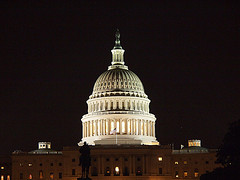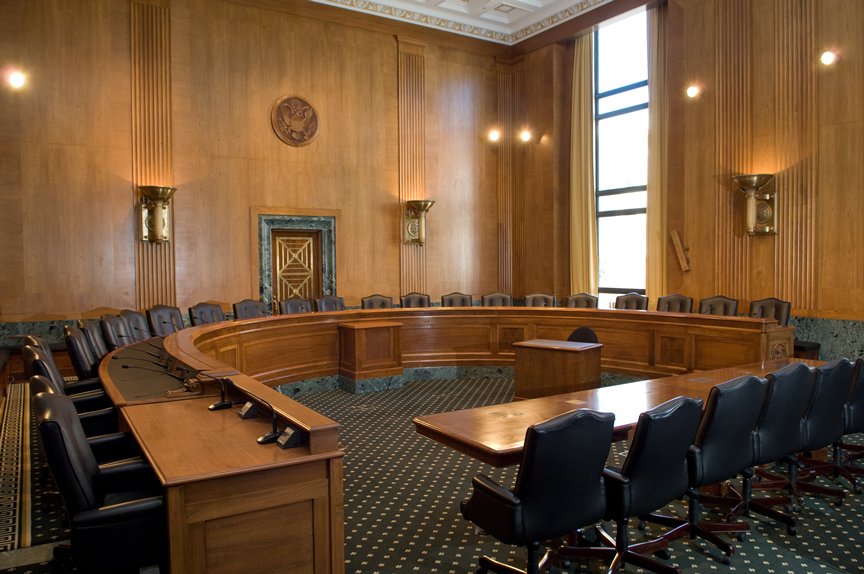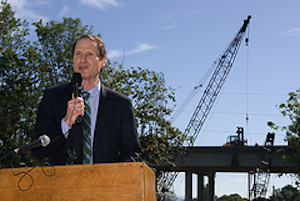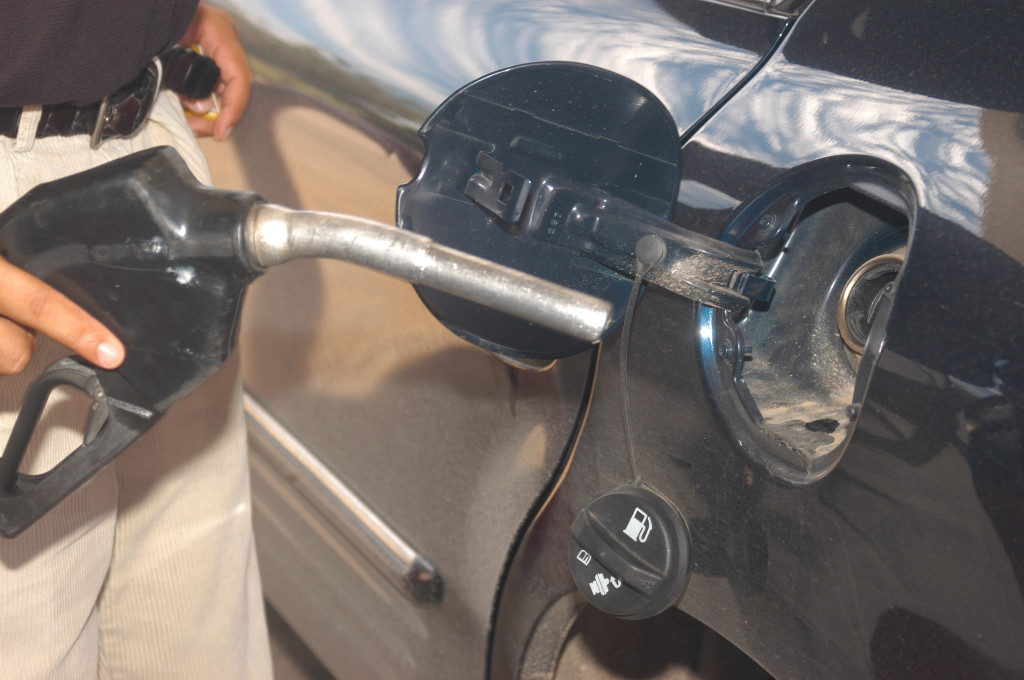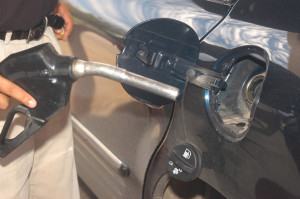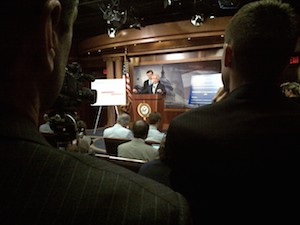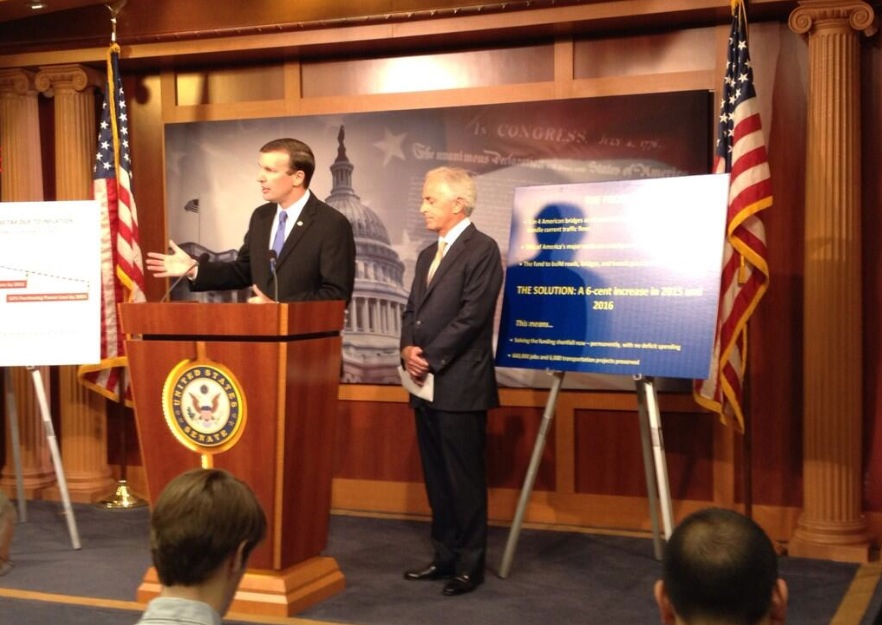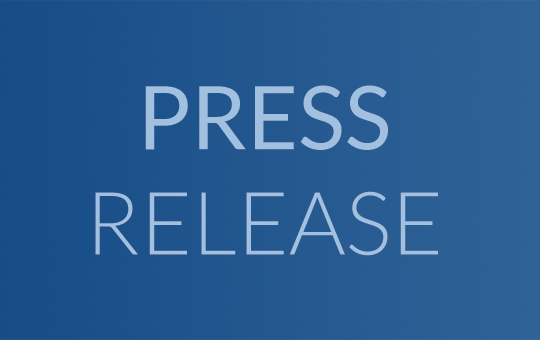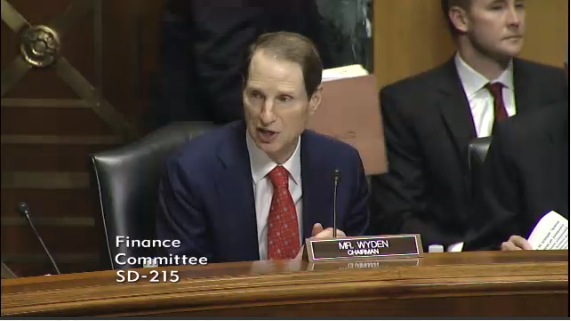
Late Tuesday evening, the Senate modified and approved a measure transferring about $8 billion from the general fund to keep the Highway Trust Fund solvent until the end of the year. But because two amendments were made, it’ll return to the House for further action before any final deal can be approved on postponing insolvency of the nation’s transportation program. The House will have to act fast: the long August recess is scheduled to begin in just three days.
Conventional wisdom had held that the Senate would adopt the House-passed bill as-is so they could finish up well before recess begins later this week. However, a strong bipartisan group supported amendments to eliminate the most controversial accounting gimmick and cut the length of the patch in half to keep the pressure on to find a long-term fix as soon as possible.
“Today’s votes held some positive signs for the future of our nation’s transportation system,” said James Corless in T4Amercia’s full statement after the vote tonight. “The Senate overwhelmingly rejected a move to dismantle our key infrastructure fund, and instead challenged themselves to take up a long-term funding solution this year.”
Two of the four amendments considered were approved before the final bill was passed. The first, from Senators Wyden and Hatch and approved 71-26, replaced the House revenue sources with the bipartisan ones agreed to by the Senate Finance Committee several weeks ago.
Once this first amendment passed, guaranteeing that the bill would return to the House, it might have made it easier for Senators on the fence to support the second amendment. That second amendment, from Senators Carper, Corker and Boxer, entirely eliminated the controversial “pension smoothing” provisions from the House bill, cutting about $2.9 billion from the patch and keeping up the urgency on finding a long-term funding solution.
The most passionate speech of the day came from Senator Bob Corker on that very topic. Senator Corker, who is also pushing an actual long-term funding plan with Senator Murphy to raise the gas tax — was incredulous at the idea that the Senate and specifically his Republican colleagues would support a plan to take ten years of funds from an accounting maneuver like pension smoothing to pay for ten months of an extension, calling it “generational theft.”
“We’re taking a finance gimmick out of this bill. … It forces us to deal with a long-term solution, which we should have done a long time ago,” he said.
An amendment from Sen. Mike Lee (R-UT) to dramatically defund the federal program by cutting the gas tax from 18.4 to 3.7 cents failed overwhelmingly, drawing only 28 votes. Lee argued, correctly, that the existing program is out-moded and fails to give local communities the resources and latitude to meet their needs, but we — and a large majority of the Senate, clearly— strongly disagree that the solution is to take the resources away altogether.
The solution — one that we would hope to see as part of any long-term funding discussion — is forward-looking policy reform that gives local leaders more of a say in how the money gets spent. Local results and accountability are what will win and keep support for the program among the American people.
We are pleased to see so many Senators take a principled stand in support of the highway trust fund and an ongoing federal role in supporting our communities and their economic future. We especially recognize the leadership of Senators Wyden, Hatch, Carper, Corker and Boxer in forging their plan and rallying support. We hope this can spur the conversation to find a long-term solution as soon as possible, and we look forward to working with the leaders in both chambers.
Action will move back to the House tomorrow in these last few days before recess begins, so stay tuned.




